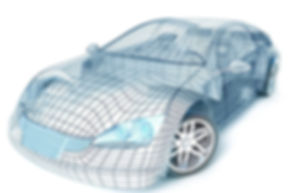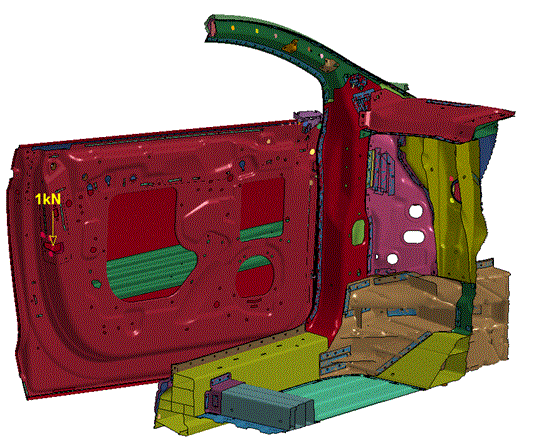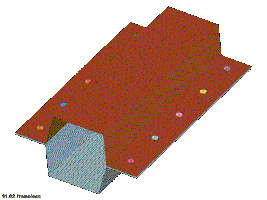
We are developing a cutting-edge CAE tool to perform large scale structure analysis with joint sub-models that incorporate geometric details and manufacturing results such as residual stress / strain and defects. This tool integrates our most advanced technologies on particle-based modeling, solid-shell immersing, sub-cycling time integration and material failure analysis.
The sub-model of large number of joints can be generated automatically from the library of various joints with the data obtained from either experiments or numerical simulation of manufacturing process. The coupling between large scale shell structure and meso-scale solid joint models is handled with no need of conforming mesh or other additional cost of meshing. The performance test data of joints is able to help speedup the meso-scale computation using the machine learning or the reduce-order modeling technique.
Co-simulation
Offline data / online extraction



Large-scale
Constraint
force
Kinematics
Speedup
computation
Meso-scale
model

Concurrent meso-scale modeling
Machine learning
Reduce-order modeling
Data process
Co-simulation framework offers the best flexibility and potential to achieve competitive performance, enhanced user experience and continuous technology innovation across different kinds of hardware / software platforms. The current practice of co-simulation is through MPI parallelization on CPU clusters. The CPU-GPU hybrid computing is expected to deliver much more acceleration on the two-scale simulation.

The following example is a crush tube impact simulation, where there are 5 pairs of joints. All joints are set as bolts in case 1, while the 3-3' pair of joints is replaced by the stronger FDS in case 2. Note that, from case 1 to 2, there is no need to change the crush tube shell model but a simple switch from bolt to FDS model in the slave job of meso-scale modeling. The results show complicated loading history on joints and failure behavior in both joints and neighboring base material, which provide design engineers the most sophisticated information about product performance from large scale to meso scale.

1
1'
2
2'
3
3'
4
4'
5'
5

Bolt

FDS
Case 1



Case 2

3' joint failure

Case 1: bolt

Case 2: FDS

Joint 1

Joint 2

Joint 3

Joint 4

Joint 5



